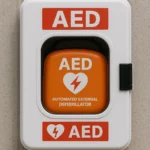
AI Solutions for Real-Time Emergency Medical Response
Introduction to Emergency Medical Response Technology
Emergency medical response technology is one of the most significant recent changes in the medical field. These precisely AI-driven solutions are changing the face of healthcare.
Why It Matters Today
- Speed is Critical: In emergencies, the time required to make decisions is crucial, and those decisions that save lives are based on reliable information.
- Enhanced Accuracy: Real-time analysis of accurate data helps battle AI and sickness and makes better decisions that benefit patients.
- For Patients: Immediate access to tailor-made treatment can be a life-saving thing for them.
- For Providers: Using AI programs helps save time, reduce mistakes, increase work speed, eliminate manual tasks, and thus bring incomparable man-machine synergy to the industry while doing it at an exciting pace.
- For Researchers: More data is available, and meaningful data will help develop a better emergency strategy in the coming years.
- Implementing this technology would be a technological breakthrough and a vital element of a more resilient and patient-centred healthcare system.
Historical Context
Emergency Medical Response Technology, primarily focused on the United States market, has significantly changed.
Evolution in Healthcare
- AI Integration: Seniors initially dominated emergency care, but later, because of AI, the algorithms of these providers have become so efficient that split-second decisions and life-and-death calls can now be easily managed.
- Tech Revolution: These days, telemedicine and data analytics technologies have been raised to a level never before. The new technology, including predictive function and data analysis, was involved in creating new ways of health care that were correct, and one characteristic is that it is the only one with the name CD.
- Bold Statement: Through a persistent fluctuation in the disaster management environment, which is a real-time solution, real-time innovations are transforming the face and modelling the future of disasters.
Impact on Medicine and Public Health
- Patient Outcomes: Better, life-and-death decision-making leads to better survival figures.
- Operational Efficiency: Processes are simplified, which allows for a much faster emergency response time.
- The bottom line is AI and emergency care, where the two meet. It is not a mere fad but a momentous recipe for success.
Current Trends in Emergency Medical Response Technology
The AI Revolution in Emergency Care
- AI is a game-changer in emergency medical responses. Real-time decision-making systems have taken a step further to come out on top in patient care.
- Data-driven insights from pioneering algorithms are fostering an automated nursing system optimizing triage and resource allocation.
Key Points
- Speed matters: AI technological systems generate less of a response when they often dispatch quickly by analyzing a very high volume of information a human couldn’t even dream of.
- Accuracy boosts outcomes: The precision in analytics brought about by better patient assessments is the main reason the hospital is doing better now.
- After adding technology to emergency services, you get the totality of trending health, which is better health, which is the only thing happening in hospitals.
Impact on Patients and Families
Emergency Medical Response Technology, especially AI solutions, transforms healthcare by allowing real-time decision-making. This conversion involves quick and accurate responses to life-threatening situations, directly benefiting patients and their families.
Benefits of AI in Emergency Care
- Faster Response Times: AI quickly analyzes data, helping professionals act accordingly so the latter can do their job promptly.
- Improved Treatment Outcomes: Better and faster decisions lead to intact patient life patient life.
- Access to Critical Information: The family unit can stay informed even when the situation is critical, which will help reduce stress during emergencies.
- Your health is very much important! The possibilities for a better quality of life are minimal, only for a few moments now. Technology is not only the advancement of the world but also the chance to save your life.
Impact on Healthcare Professionals
EMS, AI, first and foremost, has reformed how medical experts provide healthcare services.
Challenges Ahead
Employing advanced AI may seem quite tricky. Reflect on these obstacles:
- Training Difficulties: Staff have to attend the new tech education course.
- Cost Concerns: The high costs of first investments are challenging for businesses.
- Integration Issues: Old systems can reject the new demands.
A World of Opportunities
However, the possible positive effects are very substantial:
- Enhanced Resource Management: Get the best staff and manage your facilities quickly.
- Improved Patient Care: Due to the complexity of technologies, AI can help us make faster, less faulty diagnostics.
- The rapid progression of the market can lead to quality improvement in the treatment provided and operational streamlining upon adopting these advancements.
Understanding Emergency Medical Response Technology
Key Benefits of AI in Emergency Care
The introduction of AI solutions with applications in emergency medicine has switched healthcare delivery from traditional to automated. Here are some reasons why it is of great importance:
- Enhanced Decision-Making: Through real-time analytics, the AI will provide critical information that allows immediate response.
- Enhanced Efficiency: Transferring unnecessary messages that need to be addressed in seconds wastes time.
- Better Patient Results: Doctors with accurate information can quickly decide on the proper treatment to help you in time and thus save your life.
- Quick, efficient, and directed with intelligence—AI in emergency medicine is a demand rather than a caprice.
Challenges in Emergency Medical Response Technology
Ethical Concerns
The landscape of AI in emergency medical response is moving very fast, and a few critical areas, such as AI Laws and ethics, are evolving regularly.
- Privacy Issues: Patient information might leak out, leading to the disclosure of private details to other people in the case of sensitive conditions.
- Bias in Algorithms: AI systems may reproduce social prejudices that may result in care diversity.
Perspectives
Patients
- Trust Issues: Many of the patients are uncomfortable with the step of giving over control to machines for fear that they might fail and lose their lives.
Researchers
- Data Dependency: As research progresses, a continuous search for adequate and different data types is required; hence, there might be a shortage of the kind of data one needs or can afford.
Regulators
- Compliance Challenges: Verifying the ethical aspect of the new technology is a demanding activity that can quickly slow down its implementation.
Conclusion
Newly advanced emergency AI technology promises to bring about innovation; however, the right channel to avoid or embrace these hindering issues is to choose the way of mindfulness and patients’ interest.
Understanding Emergency Medical Response Technology
Embracing AI for Instant Impact
Time is of the essence in critical cases. BelowGridLabs-SA provides the most reliable AI-based solutions:
- AI-enhanced Apps: Use mobile applications that analyze patient data in real-time, ensuring rapid and informed decisions.
- Combine data spurs: Introducing advanced technology and connecting data from different sources, such as ECGs and patient histories, significantly improves diagnostics.
- Simulate with Training Software: AI will significantly help those still wanting to take an online training course. Virtual training augmented by AI simulations is intended to help first responders respond promptly and decisively to any crisis situation.
- AI should be the vanguard of your emergency care. It has the potential to save lives through every actionable emergency response.
The Future of Emergency Medical Response Technology
AI Solutions Revolutionizing Healthcare
AI technology is leading the way in healthcare and will soon take centre stage in emergency response. Advanced AI technologies are the driving force. These developments, on the one hand, are expected to facilitate real-time decision-making and thus contribute to the hastening of a patient’s recovery. On the other hand, such systems will streamline and enhance communication between people involved in the first-response team.
- Quicker diagnoses: There is no need to worry about AI algorithms, as they are impeccable at data analysis and always complete it on time.
- Smoother interaction: Easy-to-use systems help shorten communication time and contribute to a more coordinated effort by people involved with the emergency response team.
- Proactive analytics: AI can predict critical events, enabling wise precautions to be taken in advance.
- Meanwhile, career prospects in biotech are on the rise, with AI development, data analysis, and healthcare technology integration workers at the forefront. Freshen up your sight; the future is now.
Key Takeaways in Emergency Medical Response Technology
Stay Informed, Stay Ahead
The healthcare industry is changing fast due to Artificial Intelligence (AI) innovations in emergency medical response. This is not just a passing trend that they can easily forget about, as it is the backbone of their business operations, making it almost impossible to make correct decisions.
- Artificial intelligence (AI) technology positively influences both response time and accuracy.
- The public’s most important responsibility is to ensure they are well-informed and stay ahead of recently developed techniques.
- Get informed through your healthcare provider: Ask questions and find advice.
- Converse with your healthcare provider to understand the technologies and their application in your medical care. Receive a thorough briefing concerning the future of emergency response!












Post Comment